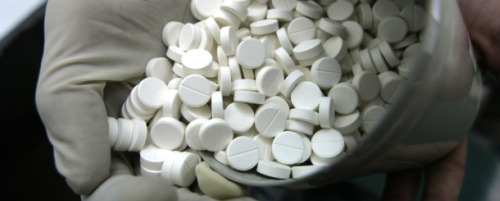A few months ago Israeli drug discovery company Compugen was in deep financial trouble. Now it’s staged a turnaround, attracting interest from international pharmaceutical giant, Pfizer.

As last year came to a close, Israeli company Compugen appeared to be in serious financial difficulties. The 17-year-old company, which had pioneered a powerful and predictive computer-based platform for drug discovery was running out of cash and there was little interest from the big pharmaceutical companies.
Then in December a transformation happened. “We announced a few very interesting discoveries, signed a ‘discovery on demand’ collaboration with Pfizer, and raised $20 million before the end of 2009,” co-CEO Martin Gerstel tells ISRAEL21c.
Compugen’s proprietary computer models analyze how proteins and peptides are created and work in the human body. Using this knowledge they can predict and select product candidates in many key areas of unmet medical need. Pfizer and others are keenly interested in Compugen’s technology to predict novel molecules for use in medicine, including critical “biomarkers” for diseases such as Type 2 diabetes and ovarian cancer.
Discovering new drugs is like panning for gold
Drugs have traditionally been “discovered” largely through a hit-or-miss process that Gerstel likens to finding gold. After the surface nuggets are taken, it gets harder to see the remaining treasure. By the late 1990s, the pharmaceutical industry had reached this point, with billions of dollars in research yielding fewer new drugs every year.
“With the human genome project beginning to give us an understanding of life at the molecular level, there was a new opportunity not to discover, but to use computer models to predict, which molecules should function in a desired way in the body, and then validate those predictions with traditional experimentation,” Gerstel explains.
Back in 1996, Compugen was producing computers that could analyze biological data one thousand times faster than existing machines. But its market was small and finite.
Gerstel, then a consultant for an American venture capital fund, was impressed by Compugen’s small team, many of them graduates of elite military research units that had led to Israel’s prominence in the high-tech world. Taking over as chairman, he focused their expertise on creating algorithms and other models of how life works at the molecular level. The scientists published many peer-reviewed papers during the following decade, but the company wasn’t on the pharmaceutical or financial radar screen.
Making computer-based drug discovery a reality
In 2002, Compugen spun out subsidiary Evogene to utilize its predictive capabilities in agricultural biology, where progress can be much faster than it is with humans. Evogene now has collaborative arrangements with seven of the eight largest ag-bio companies in the world, including a nearly $100 million arrangement with Monsanto.
In 2006, Compugen – which now employs 40, began creating “discovery platforms” for specific drug or diagnostic needs. Through the use of these platforms, Compugen is now announcing a rapidly increasing number of product candidates in many different areas of high interest.
Gerstel took the Tel-Aviv based company public in August 2000, and survived on that financing until 2009. Selling half its holdings of Evogene in 2008 allowed the company to make it through 2009. “By the end of the year, we were demonstrating that we could, in fact, do computer based drug discovery – a capability that many others had tried to accomplish in the past and failed. People were beginning to watch us.”
Signed in late December, the Pfizer deal focuses on three targets of major interest to the pharmaceutical powerhouse. “This will give them product candidates within a few months, which is amazing,” Gerstel declares. That’s because there is no experimental “discovery” involved.
“I was there when Silicon Valley was created, and there’s a lot of that feeling here now, with a passion and a somewhat Zionist quality to it,” Gerstel muses. “None of our employees left during the time we were worried we would not have the resources to continue, and now we are starting 2010 with money in the bank, 10 validated discovery platforms, and growing interest from the financial and pharmaceutical worlds.”













